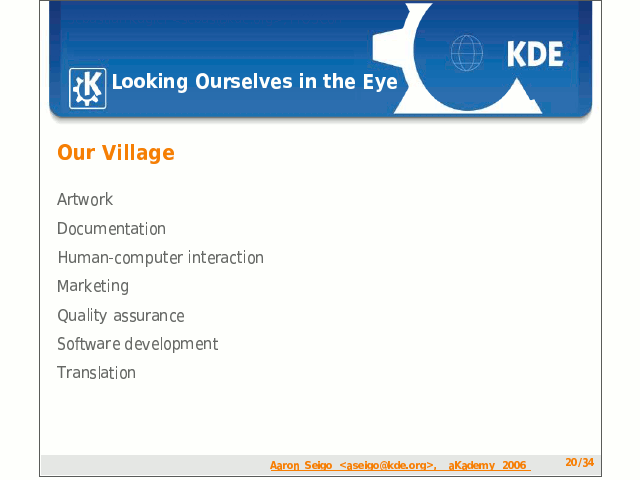Rufo Guerreschi is a political activist, an open source a free software evangelist and entrepreneur, who recently established am association – the Telematics Freedom Foundation – for the enforcement and extension of democratic and communication constitutional rights.
I asked Rufo, who I personally met about four years ago when he was looking for advices on free software licenses, to join the conversation to tell us more about his new activities and licensing proposals.
How did everything start?
I discovered free software as I started drafting grant proposals at the World Citizen Foundation in New York in early 2001. It’s goals were to develop democratic organizing software that would enable citizen-controlled global constituent processes, eventually leading to a world democratic order. It became quickly obvious that the use of proprietary software and software patents to support such processes would have in many ways limited the democratic effectiveness of those processes. During several conferences about e-democracy in the following year, I met Richard Stallman. We met many times after that, and I believe we have built a solid discourse on political phylosophy based on shared ethical goals. More recently I have become involved with proposals, through the Telematics Freedom Foundation, on how the free software movement can concretely extend copyleft freedoms in the era of shared remote software applications.
How did you get involved with free software from a business point of view?
The reason that brought me to found Partecs had the objective to create a sustainable community of client political organizations which, within total freedom, would contract us to extend and modify an initial platform for their unique needs. Originally, it wanted to be a non-profit organization, but we thought it would not have appeared as a credible provider of technology to large mainstream political organizations. Also, it would have been undemocratic for such software to be sustained by donations, as donors would have had an indirect control on the features of those tools. Members of democratic political organizations should get used to paying for democratic tools, otherwise others will on their behalf, acquiring in many ways and indirect but powerful influence on those organizations (i.e. GoogleGroups).
The “personal itch” this time was a political one, not a developer’s one like for others.
What does it mean to you being an Italian Open Source Entrepreneur?
Italy places huge obstacles to any innovative work in IT in general. This dramatic situation extends to so many areas for such long time, that it has generated a large amount of cynicism even in young people. Such decline is so engrained and in the interest of so many people in power positions, that I foresee that Italians will end up mostly “making cappuccinos for the Chinese people”; which is not such a bad destiny on the medium term.
Italian and European governments should decide to actively defend both their economic interests and ethical principles by directly countering software patenting and proprietary software practices. That, I think, would be its best hope to revive a software industry, which consists of mostly of little more than foreign proprietary software reselling and low-skilled integration services. Such revival would bring with it all other market sectors, whose innovation increasingly relies on software.
Rufo you are preparing a political agenda here, don’t you? 😉 On a more serious line I agree with you, we need governments better prepared on “technological issues” that can affect dramatically IT business.
Tell us something about your recent initiative about Telematics
We have a feeling we may be on to something very innovative and important. After a preliminary analysis, we may have found a way for the users of any given telematic service, built using FLOSS, to deploy an effective, verifiable and democratic control over their relevant shared hardware and software systems. Concurrently, it may also create a way in which a viable “copyleft” economic model to sustain the joint creation This may as well as creating a sustainable econo-system for the expansion of those tools.
Thank you Rufo, and please keep us updated!
Technorati Tags: Free Software, Telematics, Partecs, Sammondano, Guerreschi

 From Aaron Seigo’s speech, in
From Aaron Seigo’s speech, in 

Reply